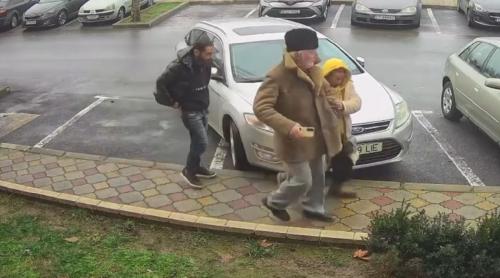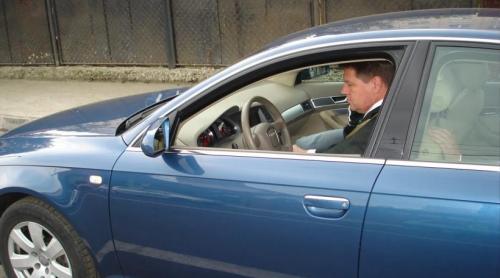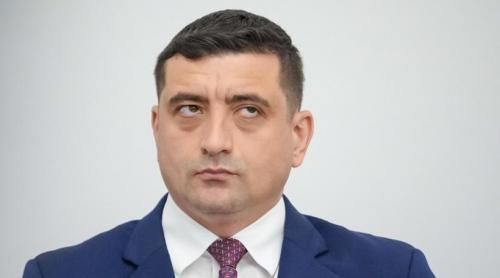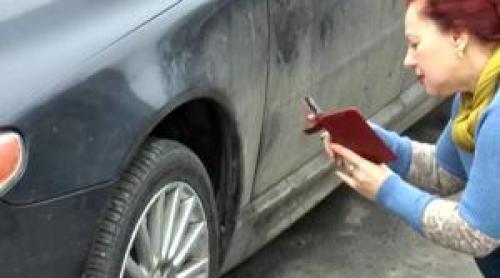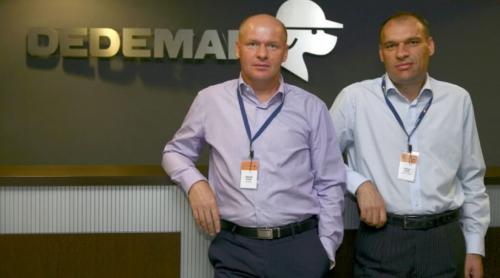New York City thought it was again under a terrorist attack as on 9.11.
But no, it was the blast of one building, initiated by its owner; a wealthy medical doctor decided he preferred to turn his property into pieces than sell it to raise the money for settling a divorce dispute.
New York City thought it was again under a terrorist attack as on 9.11.
But no, it was the blast of one building, initiated by its owner; a wealthy medical doctor decided he preferred to turn his property into pieces than sell it to raise the money for settling a divorce dispute.
Nicholas Bartha, born in Rosia Montana, Romania, made headlines in the United States, while his familyâs story in Romania leads one to believe in the curse of the gold fortunes haunting their owners.
Maria Toderas, 67, is one of the few Rosia Montana dwellers who new the Barthas and certainly the only one who claims to
have been a friend to Barthaâs mother, Ethel.
Ethel, or Aunty Etus as she was called in Hungarian, or Aunty Eta, in Romanian, died age 79, in the summer of 1997, in Rosia Montana, where she had come from New York to claim back the family fortune, nationalized by the communists in 1947.
"The Barthas were very rich; nobody really knew the size of their wealth, but they were the second richest family in Rosia Montana⦠By all accounts they owned gold mines and a casino, and had businesses running in the billions," remembers Toderas.
She met the Barthas in 1958, after Ethel and husband Ianos, plus their two sons, Nicholas and Atilla, moved to Cluj, in central Romania.
"Aunty Etus was an extremely beautiful woman. She was 40 at the time, and I was stunned at her beauty and elegance and style. In the â60s she left with her two boys for Italy. They stayed there seven years, till they completed their medical studies. After that they came back to Cluj and one year later they left for the United States," recalls Toderas.
This coming and going in and out of Romania, and most of all to and from a capitalist nation, raised serious questions with the people of Rosia Montana.
Those were the years of bleak Stalinism in Romania, when no one dared fathom the idea of holding a passport, let alone travel abroad to the Capitalist Camp, as it was called, unless it was a trusted party or intelligence services member called the Securitate.
"I heard that Aunty Etus was trading in gold during those times, when it was forbidden to. I also heard that one night the Securitate escorted her home and dug out the gold from where the Bartas hid it," said Toderas.
sTrading and holding gold was a crime during the communist regime, as those were state monopolies; the crime resulted in prison term and criminal record which would have put one out of the list of individuals allowed to travel abroad - trans. notet.
"But she was a Jew and she must have been on good terms with the Securitate, goes on Toderas, and looking into her Securitate file might prove very interesting. Aunty Etus took all her relatives in Cluj to visit the United Sates, which was an extraordinary achievement during those times of strict party control."
Toderas does not recall much of Nicholas, or Miki, as the family called him. Last time she saw him it was in 1967, when he and his brother paid a one-day visit to their friends in Rosia Montana.
"He was a thin, blond and handsome young man, aged 27, with no thoughts of settling down yet, as he told my husband laughingly," Toderas recalls.
She heard he came back to Cluj several times, but he never came back to Rosia Montana, not even to attend his motherâs funeral, in 1997.
"But his Dutch wife did come," recalls Toderas.
Last time Aunty Etus came from the United States back to Rosia Montana it was on a Friday. Saturday morning she told my husband, when meeting him, for me to visit her later in the day. But a few hours later someone called us to go see her because she paralyzed. By morning she was dead," tells Toderas.
"It was best she died, for there was no family member to have cared for her in the state she was in. People in Rosia Montana were commenting: why the heck they kept sending to Romania this old lady, via transatlantic flights, while she had everything she would have needed in the US?!"
Ethel Bartha had a simple burring ceremony, dressed in the same pants she traveled in from the United States, Toderas recalls.
Nicholasâ Dutch wife was housed in Toderasâ home, "as we could not understand each other, neither knowing the others language," says Toderas. She believes that was a maneuver of the Barthas to keep the wife from communicating with the locals.
Toderas only knew the couple had two daughters.
She visits Ethelâs tomb every day, lights a candle, and brings flowers "as no one else is left here to do this," Toderas said.
Rosia Montana villagers blame Nicholasâ wife for the blast in New York, and Toderas recalls Nicholasâ mother was never happy with her sonâs choice for a wife.
As for the swastikas Nicholas allegedly drawn up on the walls of the New York building before blowing it up, "these must have been made up," said Toderas.
"He loved his mother, who was half Jewish, and he would have never done that," said Toderas.
"The wife takes part of the blame for what happened in New York, goes on Toderas. That building Nicholas blew up was inherited by the Bartas from one of his fatherâs uncle. So, Nicholasâ wife should have had no part of that building for herself," comments Toderas.
Tranlated by ANCA PADURARU






